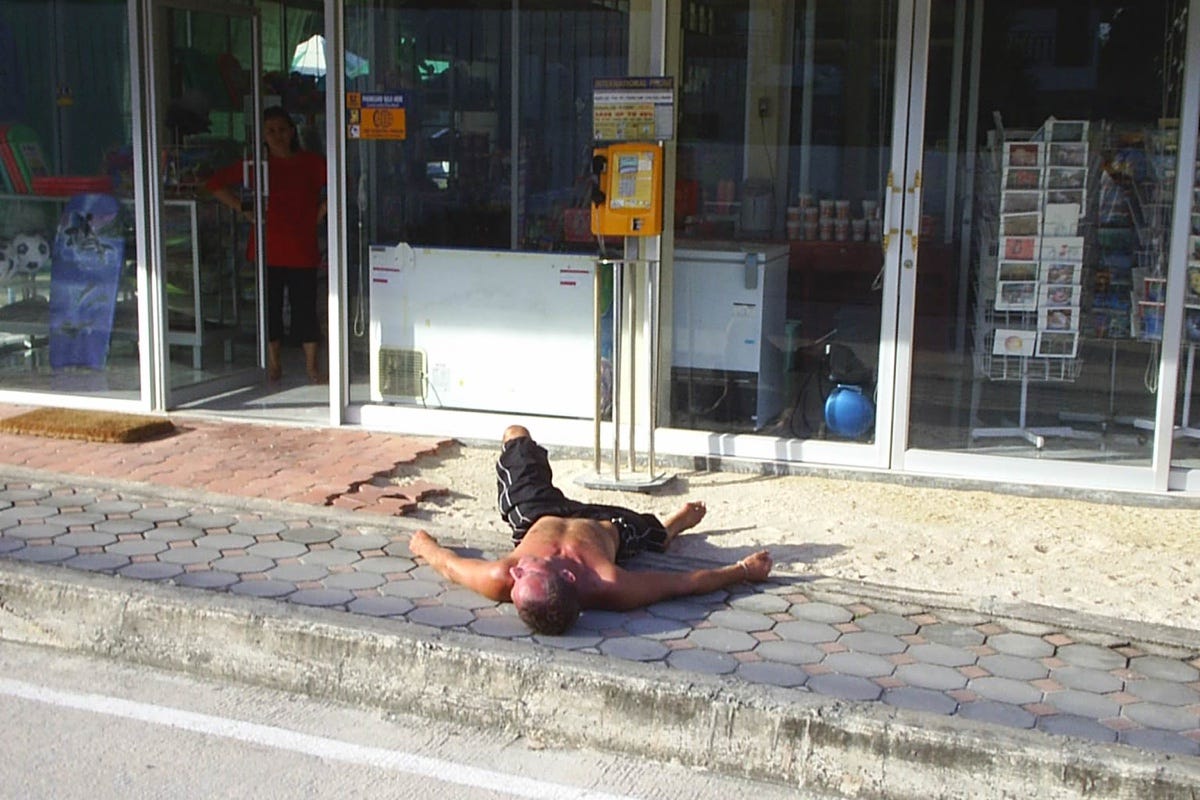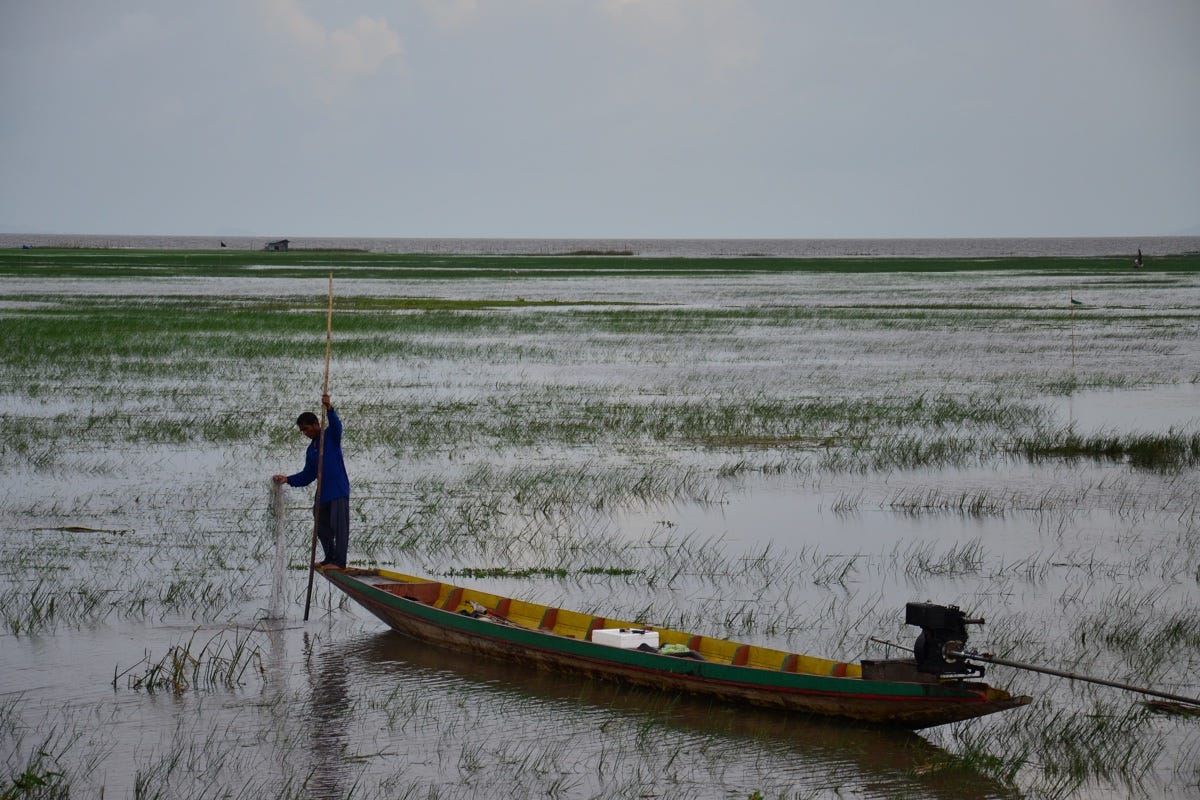If you were looking for a bonfire to incinerate your hopes for an improved approach to tourism, Thailand continues to deliver the goods. An early highlight were plans to double inbound tourism from 39.8m in 2019 to 80m—by 2027. Sounds like a totes sustainable and sensible idea.
Then the other day, came news that a long-threatened tourism tax would happen($). I’m not opposed to a tourist tax in principle, but this one is a whole mountain of stupid. So first a wrap on the stupid, then some thoughts on at an alternative approach.
Stupid 1: Complicated for no reason
The tax calls for a 300 baht or 150 baht charge for all “inbound visitors”. The 300 baht charge will apply to those flying in, with flight tickets scoring a 300 baht surcharge. The 150 baht is for those entering by land. These entries are cheaper “because they stay less time” according to the Ministry of Hot Ideas. It is unknown how collection of the land entry charge will work.
Indonesia has had some doozy tourist taxes, Fiscal was my all time favourite. Photo: Stuart McDonald.
As an added layer of complexity, those flying in but not overnighting are exempt from the charge. Diplomats, those with work permits, kids under the age of two, and “other categories” can also skip it.
I’ve not seen any justifications for these exemptions. Data supporting the suggestion land arrivals stay less time is also AWOL. Perhaps they’re thinking of all the Malaysian guys popping over the border for a ahhhh short stay. Who knows? My gut feeling is that among genuine travellers, overland entries would stay longer. But what do I know? If you work on the assumption that short stay tourism is a less sustainable form of travel, why give it a free ride?
Stupid 2: Unworkable rules
So if the fly-in fee is a ticketing add-on, how will the airline know you are staying one day only? I often fly in with one airline and out with another. Will airlines need to check the validity of my work permit? Seemingly no—good luck getting that refund expats. This is even more problematic with land entries. Are immigration officers going to ask how long one is staying? Will travellers need to prove they are leaving on the same day? How?
Keep it simple fellas. Photo: Stuart McDonald.
The upshot of the “no overnight, no charge” rule may be a move from an arrival- to a departure-charge. That would make it a departure tax. Oh wait, Thailand already has one of those, a 700 baht one worked into your ticket price. So, this is a second departure tax? Why does Thailand need two departure taxes?
Stupid 3: Why we can’t have nice things
A subtext to this tourist tax is a long-running gripe Thai authorities have been whining about for decades. It relates to a minuscule number of foreigners who do runners on their medical bills. Given the outrageous rates some Thai hospitals charge, the reasons for a runner are not impossible to fathom. Poor behaviour aside, let’s look at the numbers.
Insured no doubt. Photo: Stuart McDonald.
According to the Minister, between 2017 and 2019, runners cost the government around 400 million baht. Over the same period around 113 million tourists arrived in Thailand. To put the costs of the runners in perspective, it equates to a charge of three baht per tourist. One solution to this may have been to hold patients’ passports to make sure they pay. Hell no! Let’s charge every tourist one-hundred fold the cost of the runners instead. Sounds solid.
Stupid 4: Insurance
The Minister has forecast the charge will raise 3.9 billion baht in 2023. In January, Thailand targeted 25 million tourists for 2023, equating to 7.5 billion baht. One assumes the 3.9 billion fee relates to around six months of inbounds. In return for their 300 baht, tourists will be force-fed an insurance policy they didn’t ask for. Writes the Bangkok Post:
“Thailand will be the first country in the world to offer insurance covering accidents, death and the repatriation of bodies. The insurance is a government effort to boost confidence among tourists, she said.”
Will a country offering to repatriate your body swing the deal for you? Like many travellers, I already have insurance, so why must I re-insure? If I die which insurer gets to air-freight my corpse home? What about the costs of payouts through this policy? I’ve not seen any press coverage on this so far.
Stupid 5: It is regressive, discriminatory tax
As the tax is a flat fee, it is regressive and discriminates against budget travellers.
Stupid 6: Charge tourists to “make Thailand better”
Aside from the insurance blackhole and hospital runners, the tax also funds “the development of local tourist attractions.” You guessed right, no details on this one, though one story suggested there might be a focus on accessibility—no doubt a good idea in a country where accessibility is so often ignored, but why should tourists be the ones funding it when all would benefit?
Some things are best left alone. Photo: Stuart McDonald.
More generally, State involvement in the “improvement” of attractions has often yielded benefits of debatable value. Bangkok’s flower market or Khao San Road spring to mind. This isn’t though a totally stupid idea, so I’ll pivot to smarter here.
A smarter tourist tax
As I said up top, I’m not in principle opposed to a tourist tax. So what could a not-stupid tourist tax look like?
Smart 1: Per cent good, flat rate bad
Ditch the 300 baht flat rate and instead level a charge, say two per cent, at the accommodation point. Everywhere you stay adds an extra fee of two per cent to your bill. This is helpful for many reasons—for starters, it is nominal, simple and fair. For those who are exempt, they can show their work permit or Thai ID when they check in. Though I’d argue there is no reason why locals or those with work permits should not have to pay this as well. Diplomats should have to pay it—hell, I’d charge them triple. Properties—not OTAs like Agoda or Booking—should level the charge. At two per cent, guests would need to spend 15,000 baht on accommodation across their stay to hit 300 baht. Many spend far in excess of this.
Smart 2: Colour code the country
If you wanted to use the tax as a gentle push with regard to over-tourism, then have a shifting scale of charges. In Phuket, Samui, Chiang Mai or Bangkok? Make the charge five per cent. Nakhon Nowhere? Waive it. If you think the charge is too small to change travel patterns, increase it.
Sometimes the less touristed a place is, the better the food. Photo: David Luekens.
Smart 3: Keep the money local
Forget about sending this revenue into the consolidated revenue black hole of Bangkok. Keep the money within the province that collects it. Why? See next point.
Smart 4: Use the funds to support sustainable tourism
Forget the “development of local attractions” boondoggles. Instead find five local schemes to showcase true sustainable tourism at work. It could be a CBT scheme, an environmental education programme, community development, or something as simple as a beach clean up. Use both foreign and domestic tourists’ money to improve where they are.
Smart 5: Let tourists choose
When tourists check in to their accomodation, let them choose which of the five programmes in the province they want to support. When they pick one, tell them how much of the programme is funded, and the target goal. When a programme is completely funded, it drops off the list and another comes on stream. Tourists may even go all wild and crazy and go visit the joint they just paid eight baht of tourist tax to support.
Smart 6: Make it optional
The tourist tax should be optional. Give tourists the option of not paying. However, they should have to select on the form that they do not want to support any of the five programmes listed. Likewise—if they want to donate more—they can. Give people the option of not only knowing exactly where their money is going, but what it is achieving. People’s responses may surprise.
Give credit and gain some too. Photo: David Luekens.
Yes there would be a bit of work and dosh involved in setting all this up. That said, consider all the other schemes the Thai government wastes money on. An approach along the lines of the above could raise awareness, boost local pride, and support sustainable tourism. Hell, it might even raise more money than the stupid tourist tax—now that would be smart.
Couchfish is 100 per cent independent and reader-supported. If you’re not already a subscriber, and you’d like to show your support, become a paying subscriber today for just US$7 per month—you can find out more about Couchfish here—or simply share this story with a friend.
Don’t forget, you can find the free podcasts on Apple, Pocket Casts and Spotify as well as right here on Couchfish.


















Share this post